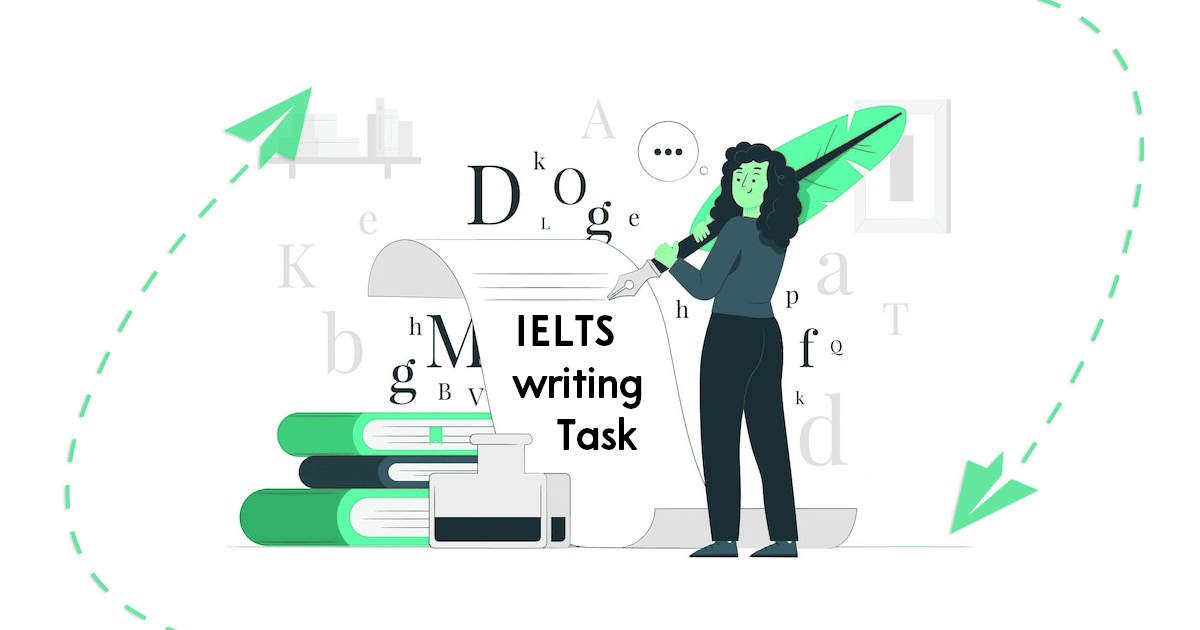Cuốn sách TOEIC Business Idioms Valley (Thành Ngữ Tiếng Anh Trong Giao Tiếp Thương Mại) giới thiệu đến các bạn 100 thành ngữ thông dụng trong hoạt động thương mại.
Cuốn sách phù hợp với những bạn đang có ở trình độ trung cấp trở lên sử dụng tiếng Anh như một ngôn ngữ thứ hai. Mỗi bài học sẽ giúp chúng ta nắm vững kiến thức về các thành ngữ tiếng Anh.
1. Giới thiệu sách TOEIC Business Idioms
Cuốn sách TOEIC Business Idioms bao gồm 10 chương, 9 chương đầu được sắp xếp theo từng chủ đề cụ thể đã được giới thiệu ở phần mục lục. Chương cuối cùng sẽ ôn lại toàn bộ các thành ngữ đã học trong cuốn sách.

Mỗi chương trong bài học đều sẽ bắt đầu theo thứ tự như sau:
- Focus in
- Listen/ Read
- Clarify
- Follow it up
- Your Turn
2. Thành ngữ trong cuốn sách TOEIC Business Idioms
UNIT 1: Negotiations
1. Take the bull by the horns: directly confront a problem or challenge. He decided to take the bull by the horns and talk to the president about the problem. She took the bull by the horns and asked her boss for a raise.
2. Be on the same page: have the same understanding about the situation or information.
3. Nothing we’ve tried so far has worked. We need to ask Gordon for his ideas because he thinks out of the box. Let’s brainstorm some ideas hers. Concentrate on some new and different solutions. We need to think out of the box.
4. Shoot from the hip: be very direct; express ideas without planning. She likes to shoot from the hip, but honestly makes people angry sometimes. You usually know what he is thinking because he shoots from the hip.
5. See eye to eye: to agree about or have the same perspective on [something] I’d like her to be on my team. We see eye to eye most of the time. We haven’t been able to agree. We don’t see eye to eye on this.
6. Bend over backwards: try very hard to please someone or to do something. She bent over backwards to try and make him happy, but he was never satisfied.
I want you to bend over backwards for this customer. It’s a very important account.
7. Lay it on the line: be very direct or frank I laid it on the line. I told him I didn’t love him anymore.
We’re tired of all the careful words. Just lay it on the line for us.
8. Back out: change or cancel an agreement or an arrangement
The investors backed out of the contract at the last minute, so we couldn’t go ahead with the building. I don’t trust her. She often backs out at the last minute.
9. Give and take: cooperation or compromise It took a lot of give and take, but I think we finally reached an agreement that satisfied everyone.
He was used to working alone. In his new job, he had to learn to participate in the give and take.
10. Meet someone halfway: compromise If you can meet me halfway, I think we can reach an agreement. They met us halfway, so that we could make a deal that worked for all of us.

UNIT 2: Meeting Work Deadlines
1. On one’s plate: [something that is] waiting to be done.
We have enough on our plate right now. We shouldn’t take on more projects right now. She has too much on her plate. She needs to assign some of the work to another person.
2. Have the bandwidth: have the ability or capacity to handle the work
Tech support is too busy. They don’t have the bandwidth to handle the calls. The company is growing too fast. I’m not sure they have the bandwidth to manage the changes.
3. Know the ropes: be familiar with job processes, procedures, or people
- We asked the new employee to talk to José because he knows the ropes and can show him around the plant. For more English materials, please visit:
- She knew the ropes, so she had to trouble getting the work done.
4. Catch on: quickly and easily learn or understand something
Let’s put him in charge of the new process because he catches on quickly. They promoted her after only three months because she had caught on so quickly.
5. A dry run: a rehearsal or practice session
We should test this prototype first. We need a dry run before we go into production. I’d like to do a dry run with this speech before I present it to the whole company.
6. Troubleshoot something: identify the problems in a program or process
We hired her to troubleshoot the problems in the process. She’ll identify them, and then the team will correct them. We have to troubleshoot the problems before we find solutions.
7. Get the bugs out: fix any problems in software programs
We have to get the bugs out of this new program before the release date. This new software engineer can get the bugs out faster than anyone on the team.
8. Plug and play: easy to install and easy to use
- I’ll be able to have this new program up and running in five minute. It’s plug and play.
- I like their products because they are so easy to use. Everything they made is plug and play.
9. Down to the wire: close to the deadline
- We have to work overtime because we’re down to the wire on this project.
- He doesn’t plan his work well, so he always has to work down to the wire.
10. Heads up: a warning that a change or new procedure is coming Our boss gave us a heads up about the change in the procedure. I’d like a heads up on any design changes so I can make adjustments.
11. Be burned out: to feel very tired and not want to continue an activity
She was burned out. She had worked with children for many years and had lost her enthusiasm for the work. She decided to take a vacation because she was burned out from working seven days a week.
UNIT 3: Challenges/ Difficulties
1. Upgrade: improve, update, or change for the better He needs to upgrade his job skills so he’ll be more employable. I upgraded my computer system so I could work better.
2. Multi-tasking: doing more than one thing at the same time. I can’t keep up with my work. I need to try multi-tasking so I can get everything done.
He got a ticket for multi-tasking while he was driving. He was talking on the car phone and looking up another phone number while he was at the wheel.
3. Make waves: to cause troubles or problems
I don’t want him on my team because he always makes waves and upsets the others. She made waves wherever she went, so she didn’t usually stay long in one company.
4. A bottleneck: a person or place that stops or slows the easy flow of ideas or
- Products There’s a bottleneck in manufacturing at the third station on the assembly line.
- We need to make some changes in the process there. That department is always a bottleneck for us when we try to get anything done quickly. They always delay the process.
5. Cut corners: save money or time by substituting inferior materials or not carrying out all the required steps. The company cut corners on the new product by using a less expensive part in the design.
We have to find a way to cut corners on this project because we’ve already gone over our budget.
6. Make do: complete a task using only the available supplies or people. We don’t have enough yellow paper, so we’ll have to make do with white.
She ran out of butter, so she made do with oil for the recipes.
7. Be in the same boat: be in the same situation as someone else
- They are both engineers who worked for start-up companies and then left to start their own companies. They are in the same boat.
- Both women have just had their first babies. They are in the same boat.
8. A pain in the neck: a difficult problem or person. This project has had problems from the beginning. It’s a pain in the neck. I left that job because it was a pain in the neck.
9. Be in someone’s face: make someone uncomfortable, be confrontational That salesman was really in my face. I didn’t like him. He stood very close and was very persistent.
She’s a difficult person to work with because she is always in your face. She likes to argue.
10. Be between a rock and a hard place: be in a difficult position, unable to escape. She’s caught between a rock and a hard place. She needs to invest in research and development to be competitive, but she has to spend all the money just to keep the company going.
He’s between a rock and a hard place. If he does what his mother wants, his wife will be angry. If he does what his wife wants, his mother will be angry.
UNIT 4: Sales and marketing
1. Be plugged in/be dialed in: be connected or be knowledgeable about in a situation.
- If you want to know what’s really going on, ask Jim. He is really plugged in.
- If you want to be dialed in, you have to communicate with lots of people.
2. Blow someone away: greatly impress someone; exceed expectations.
- He set impossible goals, and then he achieved them. It blew his boss away.
- She blew them away when she made her presentation. They had no idea she would be so effective.
3. Jumpstart: so something to get an activity or institution working better or faster.
- Let’s jumpstart this project. It is our first priority.
- The economy was lagging, so the government tried to jumpstart it by lowering the interest rates.

4. A long shot: a very difficult goal or a goal that one does not expect to achieve
Getting into that university is a long shot for him because he doesn’t have great grades. Reaching our sales goals in this quarter is a long shot because of the economy.
5. Be user-friendly: be easy to use
- This program is very user-friendly. It seems very logical.
- When a program is user-friendly, I don’t need to read the manual.
6. A game plan: a strategy or an organized approach to achieve a goal
- To get this done, we’ll need a really good game plan.
- We need to come up with a game plan to meet our goals.
7. Interface with someone/something: communicate or interact with someone or
something. Her new job requires her to interface with the customers every day. The network here no longer interfaces well with the one overseas.
8. Go for broke: attempt to reach a very high goal; gamble everything
He risked everything on the new venture. He went for broke. If we go for broke on this one, and it doesn’t work, we’ll be back to square one.
9. Strikeout: fail or make a big mistake
He struck out with the big account. They decided not to purchase the product. I don’t want to strike out on this project. I want it to be a success.
10. Go down swinging: keep trying until the end; never give it up
He didn’t win the account, but he went down swinging. I like that guy. I’d rather go down swinging than not try at all.
UNIT 5: Communication Problems
1. Get the ball rolling: start something
He asked the first question in the meeting to get the ball rolling. She got the ball rolling with the new team by asking the staff members to introduce themselves.
2. Step up to the plate: take responsibility
We hope the power company will step up to the plate and explain the power outrage. If the mistake is his, I hope he will step up to the plate and take care of it.
3. Go hand in hand: be associated with; go together
Quality and efficiency go hand in hand. One usually accompanies the other. This material goes hand in hand with the software to guide the user.
4. Step on someone’s toes: get in someone’s way; interfere with someone’s job or responsibilities
I don’t want to step on your toes, so let me know if this is OK. She was unpopular because she stepped on many toes.
5. Be on the right track: be going in the correct direction
We don’t have the problem solved yet, but I think we are on the right track. If he says it’s a software problem, I think he is on the right track.
6. Out of bounds: not acceptable
- He was a problem student. His behavior was out of bounds, so he was sent to the principal’s office.
- That topic is out of bounds during the meeting. We will discuss it later off-line.
7. Give someone the runaround: not answer a question or request; send a person somewhere else for an answer She always gives me the runaround when I ask her out. Do you think she’s not interested?
I could tell she didn’t want to answer the question. She just gave me the runaround.
8. Be in the loop/be out of the loop: be included in the communication/not be included in the communication Please send her copies of the e-mail about this so she is in the loop about this new project.
9. I haven’t received any information on this project. I am out of the loop on this.
10. Screw up: make a big error or mistake
She screwed up the order, and we had to start over again. I usually screw up when I’m really tired and I keep working anyway.
UNIT 6: The New Accountants
1. Be on the ball: be smart; be intelligent; be a good worker
She’s really on the ball. She’s quick, efficient, and does good work. I’m really glad you hired him because he’s on the ball.
2. Shoot the breeze: make informal conversation
I like to shoot the breeze with my friends. Sometimes we just sit and talk. We shot the breeze for a few minutes before we got down to business.
3. Pull strings: take advantage of connection to achieve a goal
He pulled strings to get the job. His father-in-law talked to the company president about him. She can pull strings whenever she wants something because her brother is the CEO of the company.
4. Kickback: money or favors given in exchange for influence.
That company was fined for giving a kickback to the politicians in exchange for contracts. The U.S. government frowns on kickbacks for business.
5. Go by the book: closely follow procedures or rules
- I want you to go by the book at first. You can get creative later, after you learn the process.
- She’s very careful and methodical. She always goes by the book.
6. On one’s toes: prepared to quickly move or react
- He always gives us last minute changes to keep us on our toes.
- If you work in Silicon Valley, you have to stay on your toes because things are changing very quickly.
7. Eyeball it: estimate or guess based on a quick glance.
I don’t have a measuring tape, so I’ll just have to eyeball it. I don’t have time to look at your proposal very carefully. Is it okay if I just eyeball it?
8. In the red/ in the black: in debt/ not in debt
- That company is in the red. They may go bankrupt if they keep losing money.
- One more successful business venture should put us back in the black.
UNIT 7: The Start – up
1. Go for the gold: try for a difficult goal.
Let’s go for the gold. I want to set high goals this year. She went for the gold when she put down her quarter goals.
2. Go for it: make an extra effort to meet a goal
If we’re going to make this quarter’s quota, we’ll have to really go for it. I told him he would succeed if her really went for it.
3. Dot.com/ dot.commer: an Internet-based business/ an employee of an Internet-based business. I don’t think I’m ready to go to a dot.com and work 12 hours a day. He left that big corporation and became a dot.commer because he hopes to make a million dollars when the business goes public.
4. Miss the boat: miss the opportunity
- He could have bought that stock last week at half the current price. He really missed the boat.
- She missed the boat when he said no to that deal. It turned out to be worth millions.
5. A trade-off: an exchange; the act of giving up one thing to get another
If you cut back your hours to have more free time, you’ll make less money. It’s a trade-off. She gave up her dream car to buy a house. It was a trade-off.
6. Burn rate: the rate at which a new company spends money
- The 10 million dollars of venture capital should last about five months at this burn rate.
- The burn rate is really high with new Internet companies because marketing costs are very high.
7. Bricks and mortar: a business with a physical building where goods are bought and sold, as opposed to an Internet-based business, which sells products over the World Wide Web.
- We’re a bricks-and-mortar business. We still have a retail building where we sell our products.
- Bricks-and-mortar businesses in our town are facing competition from Internet- based companies.
8. Land on one’s feet: recover from a problem or difficult challenge
His company outsourced his job, but he landed on his feet because he found a new position in another department. She managed to land on her feet when she made a career change; in fact, her salary is still rising.
9. Twist someone’s arm: convince or persuade someone to do something
- I didn’t want to go to the party, but she twisted my arm, so I went.
- Lisa didn’t want to go to the dance alone, so she called a friend and twisted his arm. He finally agreed to go along.
10. Burn one’s bridges: do something that will hurt or destroy a relationship
- I wasn’t negative about why I left the job. I didn’t want to burn my bridges. I might want to use my old boss as a reference.
- He burned his bridges when he published that book about the politics at his old company.
3. Link tải sách TOEIC Business Idioms PDF hoàn toàn miễn phí

Bên dưới là link tải sách TOEIC Business Idioms hoàn toàn miễn phí. Hãy tải về và học ngày để đạt hiệu quả nhất nhé.
Trên đây là những đánh giá của tienganhduhoc.vn về cuốn sách TOEIC Business Idioms. Đây là cuốn sách học thành ngữ hay mà các bạn có thể tham khảo. Nếu còn có thắc mắc, hãy để lại bình luận bên dưới bài viết để được giải đáp chi tiết nhé!










